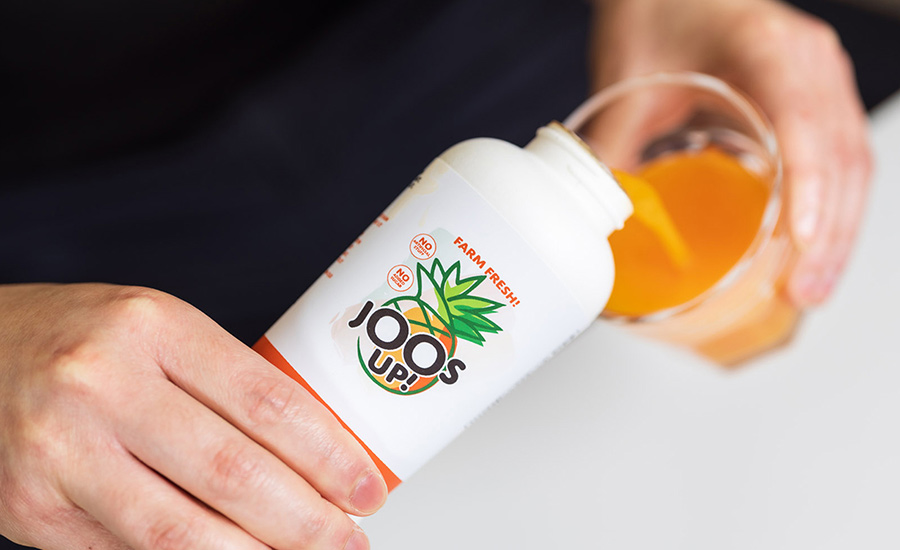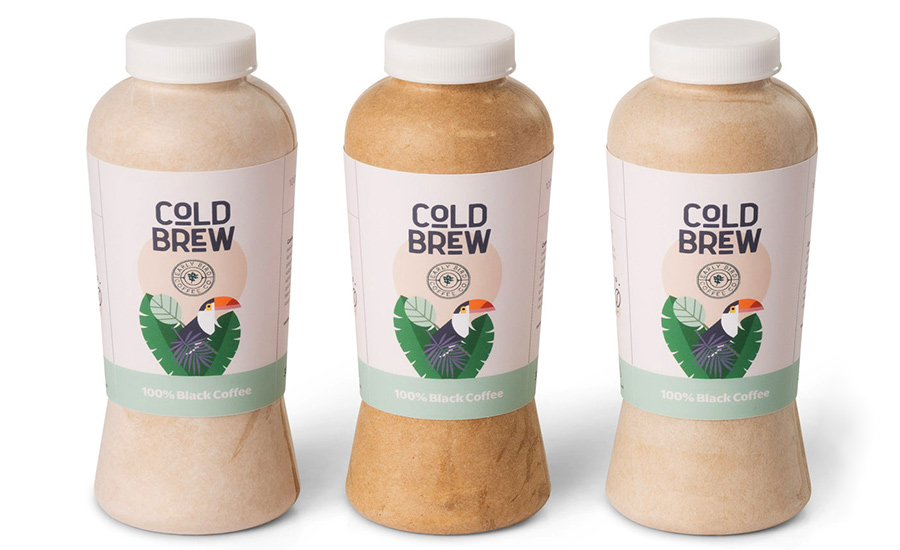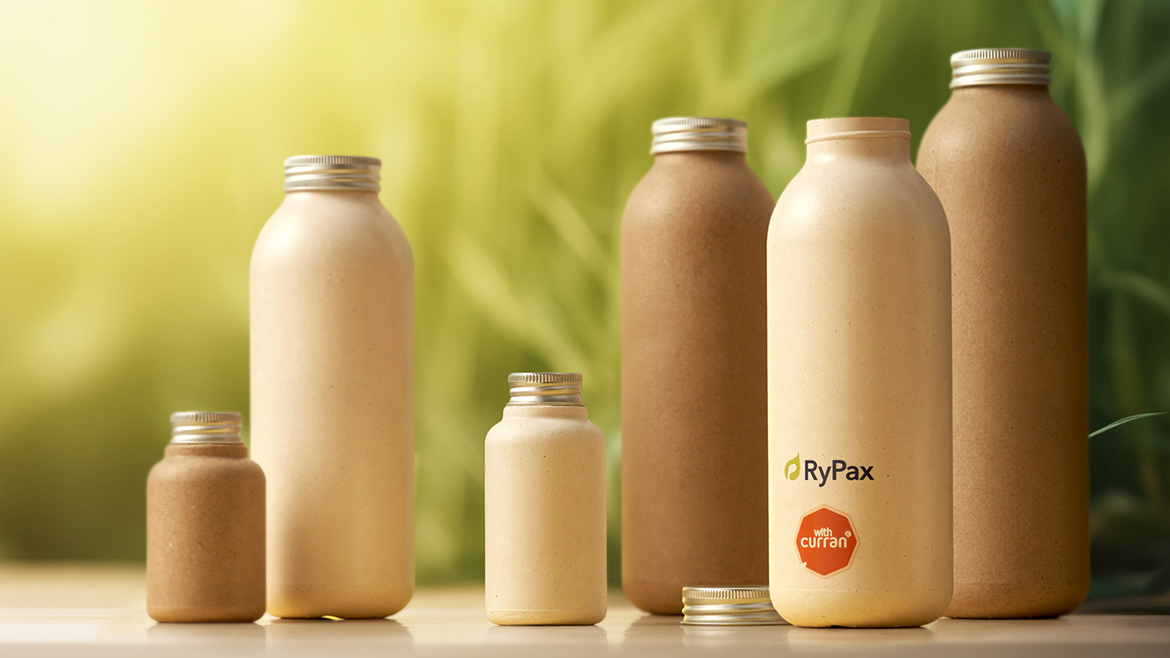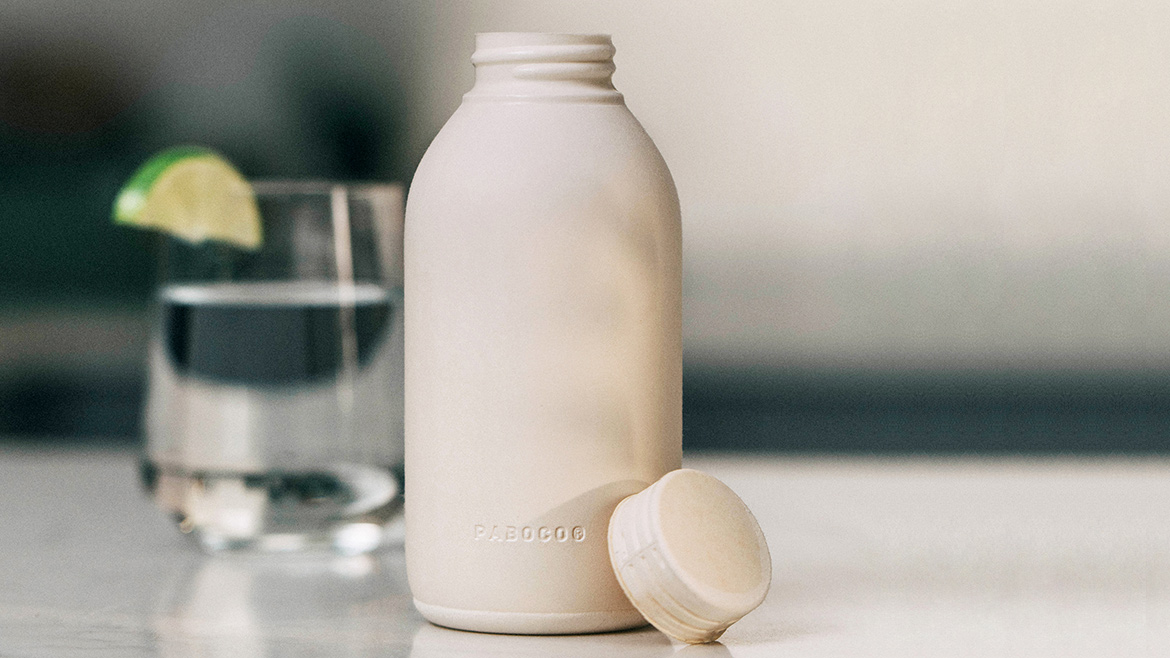2023 was abundant with packaging innovations, including when it comes to one of the most ubiquitous packaging options of all: bottles.
One key initiative has been to reduce the use of single-use plastic bottles in food, drink, consumer health and Fast-Moving Consumer Goods (FMCG) industries. To accomplish this, PulPac has teamed up with PA Consulting Group to launch The Bottle Collective, which will use PulPac’s patented Dry Molded Fiber as an alternative to plastic bottle packaging.
Meanwhile, CelluComp and RyPax have teamed up to offer their own fiber-based bottling solutions. One involves a novel pulp fiber made of a proprietary cellulose product (Curran®), bamboo and bagasse. The material can be applied as a thin, impermeable coating to the bottle’s interior, eliminating the need for a plastic liner.
Not to be outdone, Paboco (The Paper Bottle Company), plans to produce a fully recyclable paper bottle at a new state-of-the-art manufacturing site in Denmark starting in late 2024.
Read more about these companies at the forefront of developing sustainable alternatives to plastic bottles.
PulPac and PA Consulting Partner to Launch The Bottle Collective

The manufacturing process for PulPac’s patented Dry Molded Fiber uses less CO2 than plastic and conventional wet molding options, and the process uses almost no water as well.Courtesy of PulPac

Multiple leading brand partners have already joined the Bottle Collective to continue developing and scaling fiber bottles by 2025.Courtesy of PulPac
PulPac, a leading developer and provider of groundbreaking manufacturing technology for low-cost, high-performance fiber-based packaging and single-use products, has partnered with PA Consulting Group to launch a new initiative that will help minimize the use of single-use plastic bottles in food, drink, consumer health, and FMCG industries.
Using PulPac’s patented Dry Molded Fiber, The Bottle Collective will create a fiber-based alternative to plastic bottle packaging that will help contribute to the circular economy. The manufacturing process uses less CO2 than plastic and conventional wet molding options, and almost no water is used in manufacturing, which creates a highly versatile container mold for consumer companies.
CelluComp and RyPax Debuted All-Fiber Bottle at PACK EXPO Las Vegas

RyPax and CelluComp have been collaborating on a commercial all-fiber bottle format for more than three years and recently gained validation from the Danish Technological Institute (DTI). Courtesy of CelluComp
After years of perfecting its propriety microfibrillated cellulose product, Curran®, made from the waste stream of root vegetables, Scottish-based CelluComp, and Asia-based molded fiber packaging production firm, RyPax, are pushing the industry forward by combining precision plant-based packaging production with a highly renewable feed stock ingredient to crack the code on the all-fiber bottle.
The revolutionary step the two independent businesses took was developing a novel pulp fiber made with a mix of Curran®, bamboo and bagasse. This material is extremely strong with minimal porosity and allows the application of a thin, impermeable coating to the bottle’s interior, which allows manufacturers to take the next important step in environmental packaging by eliminating the need for a plastic liner.
Denmark's Paboco to produce fully recyclable paper bottles at new facility in 2024

Since 2021, Paboco has been testing paper-based products on the market together with the Paboco Pioneer Community members: The Absolut Company, Carlsberg Group, The Coca-Cola Company, L’Oréal and Procter & Gamble. Courtesy of ALPLA
Paboco develops bio-based packaging solutions made from pulp. The Danish joint venture was founded in 2019 by ALPLA and pulp and paper manufacturer Billerud.
ALPLA is now taking over Billerud’s shares and, as majority shareholder, is investing in scaling up manufacturing capacity. From the end of 2024, Paboco plans to produce a fully recyclable paper bottle at a new state-of-the-art manufacturing site in Denmark.
Paboco (The Paper Bottle Company) develops and produces fiber-based packaging solutions using innovative pulp-forming technology. The company was founded in 2019 by ALPLA and Billerud as a joint venture. By taking over all of Billerud’s shares and investing in Paboco, ALPLA is pushing the rapid industrialization of the fully recyclable paper bottle made from FSC-certified fibers.

